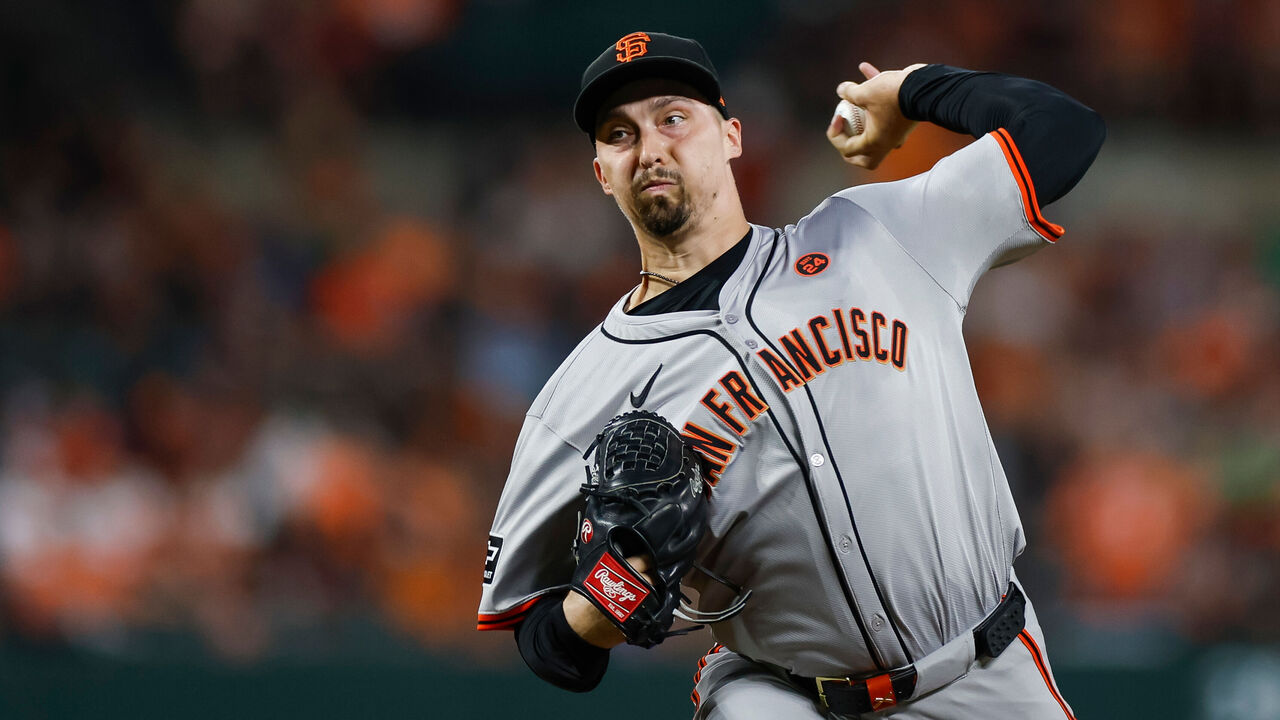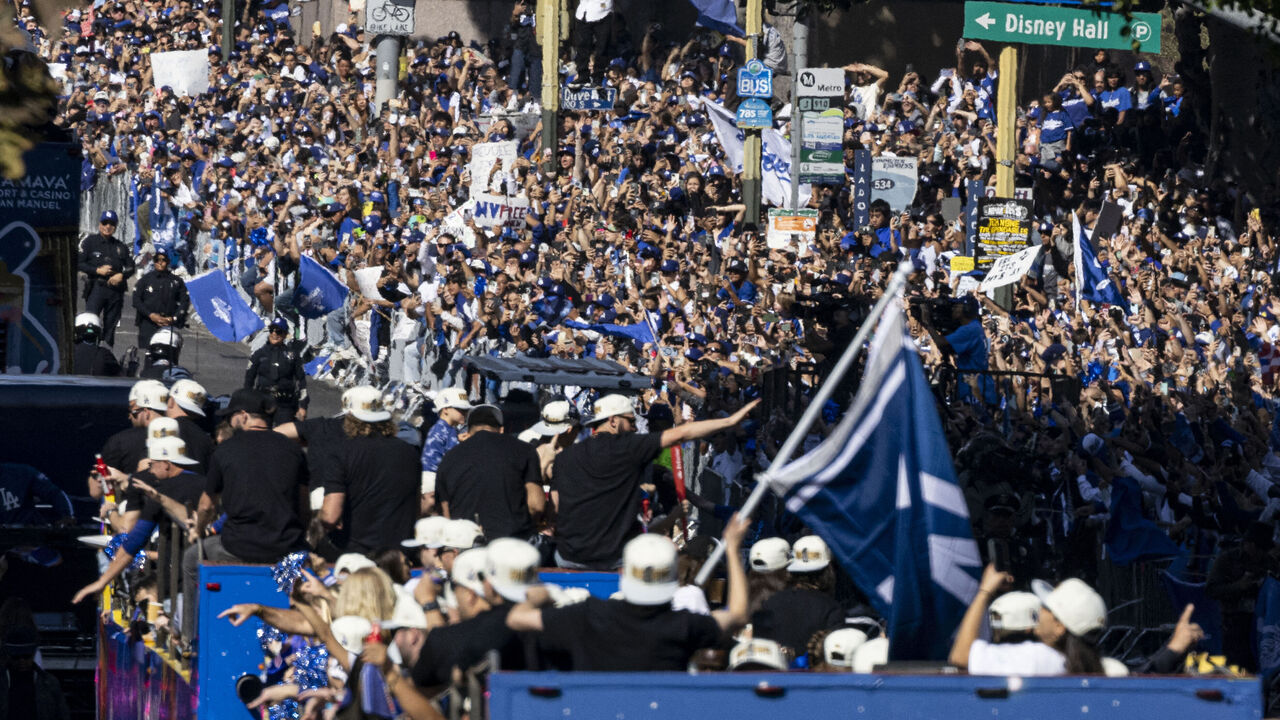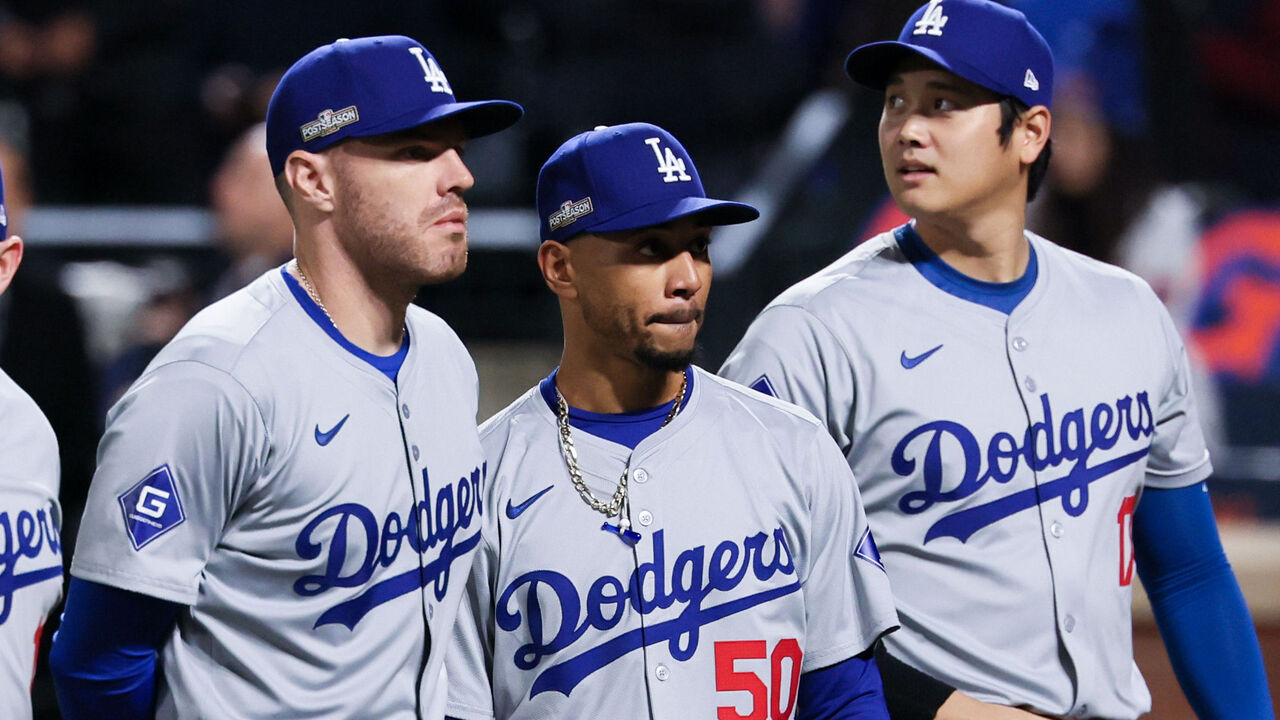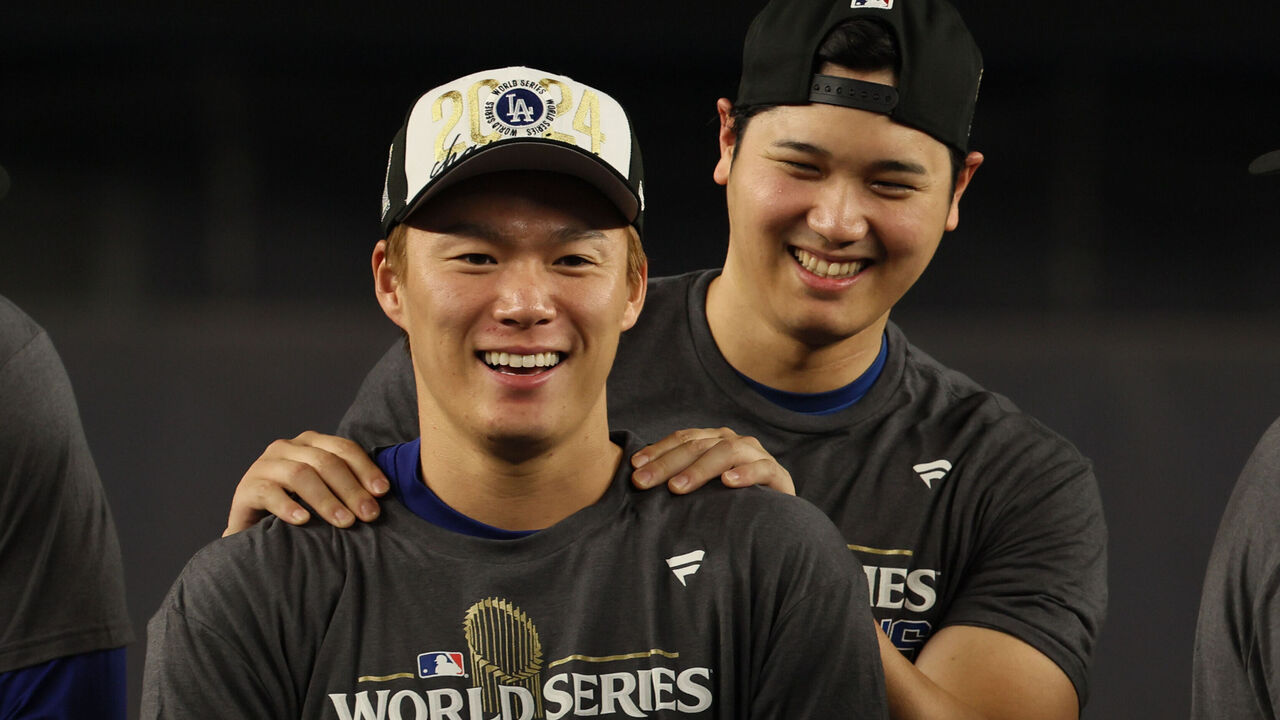The Dodgers are running away from the field - and toward a dynasty
Whenever a contending large-market team signs a major free agent, there are often concerns and complaints about MLB's financial playing field. For many, it feels tilted at a 45-degree angle.
Now, winning the hot-stove season often doesn't result in lifting the Commissioner's Trophy. Money spent doesn't guarantee success in modern baseball. That's mostly because, in a sport dependent upon large samples to determine performance level, expanded playoffs is like employing a random number generator to determine a champion.
But this time may be different.

The Los Angeles Dodgers added two-time Cy Young winner Blake Snell to their rotation Tuesday, agreeing to a five-year, $182-million deal. The nine-figure deal is the fifth issued by the club since the start of last season, matching the rest of MLB.
The addition's shaking up baseball.
The Dodgers are so overwhelmingly good in every facet of their organization, and so rich, that they may be building the first MLB dynasty of the 21st century.
No team's won consecutive titles since the 1998-2000 New York Yankees' three-peat.
Consider that the Dodgers are coming off a season in which they won the World Series without Tyler Glasnow, Clayton Kershaw, and Shohei Ohtani being able to pitch in October. And without Snell, of course.

They were champions despite using the second-most pitchers in baseball in the regular season due to a rash of injuries.
The Dodgers won a title with one arm proverbially tied behind their back last season. They'll likely be healthier on the mound in 2025, and more talented, and they may not be done getting better.
In addition to Snell, the club's a considered a favorite to sign Roki Sasaki, perhaps the most talented arm to ever come out of Japan, who's expected to be posted in December.
The Dodgers are also among the teams bidding on free agent Juan Soto.
They're pulling every lever.
They've built an excellent player development system, scout well, and employ a smart front office. On top of all that, they have an ownership group willing to spend enormous local revenues enjoyed from residing in the No. 2 media market in the United States.
And despite all the spending to date, there's plenty more in reserve.
Subtract the Dodgers' actual 2024 payroll plus luxury-tax payments from their last full year of revenues estimated by Sportico and the math spits out: $308 million. And that $308-million surplus is equal to or greater than the total revenues of the 10 lowest-revenue clubs in the baseball, according to Sportico's estimates.
Making matters worse for the rest of baseball, the Dodgers are engineering a new lever to pull, helping enable some of their spending: extreme amounts of deferred money.
Snell's contract reportedly contains $60 million in deferrals, which means the Dodgers have now signed five players to contracts that include nearly a billion dollars - $962 million, to be exact - in deferred money, most notably with Ohtani ($680 million of his $700-million deal is deferred).

The strategy has a couple of significant advantages for the club.
For starters, the loophole allows them to lower their luxury-tax figures and corresponding tax hits.
Ohtani's 10-year, $700-million deal on paper, for instance, is calculated as a $46-million figure for 10 years for luxury-tax accounting purposes, as the deferral payments are discounted for inflation-adjusted value. (The Dodgers are perhaps inspiring a new generation of accountants.)
The strategy also means they're paying stars less than their headline contract number.
Not only will inflation likely eat away at the value of Ohtani's future earnings, but the Dodgers are only paying him $2 million per year through 2033, while setting aside $44 million in an escrow account each year beginning in 2026 to pay the deferrals. The expectation is the dollars in the escrow account will accrue enough interest to pay off the $68-million payments when they come due.
The Dodgers, in other words, may end up only paying $460 million or thereabouts of Ohtani's actual $700 million. The magic of compounding interest will do the rest. They've created financial flexibility in addition to skirting the full brunt of luxury-tax payments through this deferral approach.
Players agree to the deferrals ostensibly to join a superteam, and in Ohtani's case, to avoid California state tax when the majority of his payments come due.
Everyone's happy in L.A., but that's not the case throughout much of the rest of the sport.
The game seems increasingly unfair for many.
There could be some pushback. The Dodgers may be pushing the limits on deferrals to such a degree that - combined with their on-field success - the next collective bargaining agreement cracks down on such payments.
But the financial imbalance will remain, even if the accounting regarding deferrals changes in future labor agreements.
The Dodgers enjoy $334 million in local cable payments per year through 2038 at a time when a number of clubs have lost their previous guaranteed regional sports network deals. While a large chunk of that cable TV sum is placed into revenue sharing - teams place 48% of their local revenues into a pool and split that pie evenly - that $334 million is greater than 15 clubs' total revenues, according to Sportico revenue estimates.
The financial gap is already wide and it's growing.

Fans and rival clubs wanting to see a more level financial playing field are likely going to be waiting years, at best, if not for eternity.
The MLBPA doesn't want a salary cap, even if it would benefit most players by raising minimum and median salaries. Moreover, there's no mechanism forcing owners to spend more on payroll. (Owners did propose a salary floor in the last CBA but the MLBPA balked when owners demanded more restrictive measures limiting top payrolls.)
The Dodgers are a perfect storm.
They combine financial might and accounting creativity, along with having imported the best small-market practices post-"Moneyball" and a front office that's also embraced modern player development practices.
Add it all up and the Dodgers could be this century's first dynasty.
Travis Sawchik is theScore's senior baseball writer.